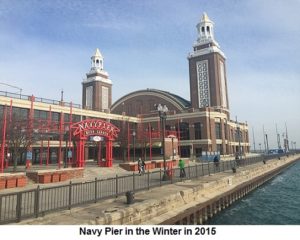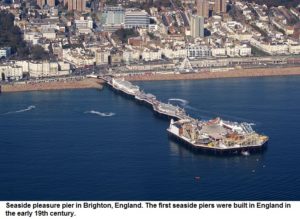Go Lean Commentary
Trade giveth; trade taketh away …
This has now been established: trade can transform a society, elevating masses of people out of poverty to a middle-class life.
We have seen this formula succeed and repeated time and again – Great Britain, United States, Germany, Japan, Asian Tigers (Singapore, Hong Kong. South Korea and Taiwan). The formula also works in the reverse: stopping trade and people become more improvised.
We are seeing this actuality now as well.
This is the assessment in the US where the current American Federal government (under President Donald Trump) has a new penchant for tariffs. This is also en vogue with the experiences in the UK; London is negotiating a new trade deal with the European Union as they leave – Brexit – that Single Market. Both of these developments appear to be inviting doom for the perspective economies.

This commentary is the fourth submission of a 5-part series (4 of 5) from the movement behind the book Go Lean…Caribbean in consideration of the subject “In Defense of Trade“. The focus here is that Trade must be prioritized in the Caribbean region if we want a new economic regime. The other commentaries in the series are cataloged as follows:
- In Defense of Trade: China Realities
- In Defense of Trade: Macy’s Thanksgiving Parade Model – ENCORE
- In Defense of Trade: India BPO’s
- In Defense of Trade: Bilateral Tariffs – No one wins
- In Defense of Trade: Currency Assassins – Real Threat
No doubt, we want growth, so this means we must embrace the strategies, tactics and implementations related to trade. This is how we can succeed with the quest for jobs, entrepreneurial opportunities, better educational and healthcare options, a safer homeland and more efficient governmental services. We must pay more than the usual attention to these discussions, especially related to tariffs.
A tariff is a tax on imports or exports between sovereign states. Trade deficits mean that consumers buy too much foreign goods and too few domestic products. According to Keynesian theory, trade deficits are harmful. Countries that import more than they export weaken their economies. As the trade deficit increases, unemployment or poverty increases and GDP slows down. And surplus countries are getting richer at the expense of deficit countries. Keynes thought that surplus countries should be taxed[1].The tariff is used to equalize the trade balance in order to protect domestic workers. It is a policy that taxes foreign products and encourages home industry. – Source: Wikipedia.
Right now the US is doubling-down on a tariff strategy so as to force their will on the international community – especially targeting China. But the experts are asserting that a tariff strategy is not the solution.
Experts? The Economists … and Wall Street Titans. See this one Wall Street Titan prognosticate the vision of trade realities in this November 2018 VIDEO:
VIDEO – Ray Dalio on U.S. – China Trade Tensions, Markets – https://youtu.be/ZTJkNDlHB3s
CNBC
Published on Nov 15, 2018 – Ray Dalio, hedge fund giant Bridgewater Associates, joins ‘Squawk Box’ to discuss markets, interest rates, the debt market and U.S.-China trade tensions.The dispute between the U.S. and China over trade deficits and surpluses is rather trivial compared to the broader philosophical differences between the world’s two biggest economic superpowers, Bridgewater Associates founder Ray Dalio told CNBC on Thursday.
“The trade war, I think, can be worked out,” the billionaire investor Dalio said in a “Squawk Box” interview on CNBC. But he argued the conflict goes “way beyond the trade war.”
Dalio, co-CIO and co-chairman at Bridgewater, said the two nations’ polar opposite methods of governing is the broader, more difficult issue to reconcile. “It goes back to Confucius in 500 B.C.,” he said.
“It’s basically a top-down versus a bottom-up type of approach,” said Dalio, whose China unit of Bridgewater last month launched its first onshore Chinese investment fund.
“When you look at the 2025 plan in China, the government believes that they should have a plan for making China great” and will coordinate all aspects of public and private enterprise to achieve their goals, he said. “That type of activity is objectionable to the United States” in its free market economy.
The China 2025 plan is a state-backed industrial policy that’s provoked alarm in the West, and is core to Washington’s complaints about Beijing’s technological ambitions.
Dalio appeared on CNBC from the Greenwich Economic Forum in Connecticut where he later spoke to the elite gathering of “investment thought leaders“.
- Category: News & Politics
 So Wall Street experts like Ray Dalio are urging caution for national governments implementing trade tariffs. In fact, an editorial by the iconic Wall Street Journal is strongly urging the trump administration to tread lightly with their new found affinity for tariff. The reason is simple:
So Wall Street experts like Ray Dalio are urging caution for national governments implementing trade tariffs. In fact, an editorial by the iconic Wall Street Journal is strongly urging the trump administration to tread lightly with their new found affinity for tariff. The reason is simple:
No one wins a Trade War fought with the weapons of tariffs. It’s a fallacy and defective reasoning to think that tariff’s can be used to win a Trade War in this modern age of globalization.
This is the conclusion of the below Opinion Commentary in the Appendix: See the excerpt-summary here:
Mr. Trump has instead employed a unilateral tariff policy that lets him boast about being tough without a clear goal. The tariffs will hurt Chinese exporters, though many will move production to other countries. But tariffs also damage American producers and consumers, as does the $60 billion in new retaliatory tariffs that Beijing announced Tuesday.
The Caribbean needs to take note. We need effective strategies, tactics and implementation for trade. This is the quest of the book Go Lean…Caribbean.
The Go Lean book serves as a roadmap for the introduction and implementation of the technocratic Caribbean Union Trade Federation (CU). The CU seeks to optimize the region’s economic systems to better deliver on the prime directives of the Go Lean roadmap. The prime directives are pronounced as the following statements:
- Optimization of the economic engines in order to grow the regional economy to $800 Billion & create 2.2 million new jobs.
- Establishment of a security apparatus to protect the resultant economic engines and mitigate challenges/threats to ensure public safety for the region’s stakeholders.
- Improvement of Caribbean governance, including a separation-of-powers between member-states and CU federal agencies.
So the CU Trade Federation vision is to provide the stewardship for the region’s economic engines, to optimize trade, so as to succeed in the goals of the roadmap.

The Go Lean/CU roadmap is designed to drive change among the economic, security and governing engines of the Caribbean member-states. The Go Lean book – within its 370 pages – describes how a new Caribbean regime can better exploit the benefits of trade – thereby avoiding the pitfalls of faulty trade reasoning. Among the new community ethos the book urges the region to adopt and the strategies, tactics and implementations the book urges the region to execute is this one advocacy to double-down on trade. Consider the specific plans, excerpts and headlines from this advocacy on Page 128 entitled:
10 Ways to Improve Trade
| 1 | Lean-in for the Caribbean Single Market
This treaty allows for the unification of the region into one market, thereby creating a single economy of 30 member-states, 42 million people and a GDP of over $800 Billion. The CU will function as a proxy organization of the governments of all 30 member-states … . The similar exclusivity of roles and responsibilities will allow the CU to deploy and then empower the economic engines of this region. The profits from this new Trading Company, the CU, also go back to its stockholders; in this case, the member-states. In addition, the treaty will call for a homeland security pact, with emergency management provisions, to assuage regional threats and risks. The CU gets to apply the lessons-learned from … experience to pursue the Greater Good, ensure that its powers are always authorized and deputized by the sovereign states, and proper governance, transparency and accountability accompany all activities. |
| 2 | Adopt Trade SHIELD
The CU will adopt the Trade SHIELD principles (see APPENDIX D on Page 264) to foster and optimize domestic and international trade. |
| 3 | Caribbean Dollar (C$) Currency Stabilization Derived from Learned Lessons |
| 4 | Electronic Commerce to Streamline a Bigger Better Domestic Trade Market |
| 5 | CU Citizens as Foreign Guest Workers |
| 6 | Diaspora Trade
The presence of a Caribbean Diaspora in North American and EU cities furnishes an export market to profit from trade. Since most often, the Diaspora live in “pockets” in their foreign lands, the logistics of exporting products (food supplies and intellectual property) has been efficient, but the CU envisions an even more optimized trade process with Free Trade provisions, collaborated customs processing, pre-approved inspections, and electronic commerce in C$ Dollars. |
| 7 | Intellectual Property – Media, Music |
| 8 | Tourism Enhancers |
| 9 | Strategic Priorities (Food, Fisheries)
One mission of the CU is to facilitate the food supply so that the region can feed itself, more from local production and less from trade; this includes yields from domestic agriculture and fisheries. Even if the opportunity cost is too high for domestic food production compared to foreign trade, the CU must supplement with subsidies. Food is non-negotiable! |
| 10 | Trade Missions
The CU will foster a stronger foreign policy by “speaking on one accord” for all the member-states. The CU will therefore open/staff foreign Trade Missions to not only perform diplomatic services, but economic ones as well. This will extend beyond the current Trade Negotiations (OTN), so as to add the functions of a Group Purchasing Organization (GPO). |
Tariffs are bad by the country imposing them, but by any competing entity – you hurt yourself.
Imagine the absurdity of this analogy: A Bad Actor robs a bank and instead of targeting the innocent hostages in the bank, he threatens to harm himself – “Give me the money or I will shoot … myself”.
Now that the Great Recession (2008) is over in the US, the country is enjoying a full recovery. But as warned in the foregoing editorial, faulty trade reasoning can jeopardize this disposition:
Strong U.S. growth after tax reform and deregulation is so far dwarfing the overall economic harm from tariffs, as Tuesday’s market nonchalance indicates. But the tariffs are doing arbitrary harm to innocent Americans, and a policy of hurting yourself until the other guy changes his behavior is hard to sustain.
This Go Lean movement has addressed Good -vs- Bad Trade Policies in the past. This consideration has reviewed the business prospects of chattel items (raw materials and finished goods), intelligent property (music and media products) and services (tourism, medical, outsourcing, etc.). Consider this sample of previous blog-commentaries:
| https://goleancaribbean.com/blog/?p=15346 | Industrial Reboot – Shipbuilding 101 |
| https://goleancaribbean.com/blog/?p=13184 | Industrial Reboot – Frozen Foods 101 |
| https://goleancaribbean.com/blog/?p=15310 | Industrial Reboot with Trauma Centers |
| https://goleancaribbean.com/blog/?p=13138 | Industrial Reboot – Prisons 101 |
| https://goleancaribbean.com/blog/?p=12230 | Commerce of the Seas – Extraction Realities |
| https://goleancaribbean.com/blog/?p=12126 | Stupidity of the Jones Act on PR, USVI Trade |
| https://goleancaribbean.com/blog/?p=7789 | An Ode to Detroit – Good Luck on Trade! |
| https://goleancaribbean.com/blog/?p=6867 | How to address high consumer prices? Better Trade |
| https://goleancaribbean.com/blog/?p=5648 | New Trade Regime for Music Industry |
| https://goleancaribbean.com/blog/?p=4767 | Welcoming WTO? Say Goodbye to Nationalism |
| https://goleancaribbean.com/blog/?p=479 | PetroCaribe approach to Regional Trade & Social Advocacy |
The Caribbean can be a better homeland to live, work and play with a better execution of trade policies. Trade is more about “brains than it is about brawn”. We need to think smart and work smart to reform and transform our society.
Let’s do this!
This is the Go Lean quest.
We urge everyone in the Caribbean to lean-in to this roadmap. It is conceivable, believable and achievable. 🙂
Download the free e-Book of Go Lean … Caribbean – now!
Sign the petition to lean-in for this roadmap for the Caribbean Union Trade Federation.
—————-
Appendix – Title: The Missing China Trade Strategy
Sub-title: Trump imposes new tariffs but what he wants from Beijing isn’t clear.
By: WSJ Editorial Board
President Trump on Monday imposed a long-threatened 10% tariff on $200 billion of Chinese imports, effective next week, with the rate set to increase to 25% at the end of the year. More than half of Chinese imports now face punitive taxes, so it’s remarkable that the U.S. still hasn’t spelled out what it wants from Beijing. The lack of a strategy makes it hard to secure meaningful gains and resolve a trade war that is damaging both economies.
The Administration is on solid ground when it says China’s behavior threatens the global trading system. A study by the U.S. Trade Representative found “numerous unfair policies and practices relating to United States technology and intellectual property.” There is bipartisan U.S. support to address China’s violations of its promises to respect market forces.
 But Mr. Trump also continues to rail against China for its large bilateral trade surplus with the U.S., and this is clearly motivating his escalation of tariffs. The surplus is driven largely by Chinese comparative advantage in low-end manufacturing and global capital flows to the U.S. Prioritizing a goal that flies in the face of market forces sends a mixed message to Beijing on what the U.S. wants, and it allows China to pose as the defender of free trade.
But Mr. Trump also continues to rail against China for its large bilateral trade surplus with the U.S., and this is clearly motivating his escalation of tariffs. The surplus is driven largely by Chinese comparative advantage in low-end manufacturing and global capital flows to the U.S. Prioritizing a goal that flies in the face of market forces sends a mixed message to Beijing on what the U.S. wants, and it allows China to pose as the defender of free trade.
Cabinet members have tried to negotiate deals that would satisfy Mr. Trump’s obsession with the trade deficit, only to have him reject them as insufficient. Commerce Secretary Wilbur Ross struck a compromise last year on steel production that was discarded after he returned from Beijing. In May Treasury Secretary Steve Mnuchin reached a tentative deal to put tariffs on hold if the Chinese bought more soybeans and natural gas, but the White House resumed its tariff threats in June.
Mr. Trump is correct on many points, including his complaints that his predecessors failed to address changing Chinese behavior. China’s accession to the World Trade Organization in 2001 assumed the country was committed to what it then called “reform and opening” and would honor its promises to let foreign companies compete and protect intellectual property. The agreement largely treated China like other trading nations and relied on WTO arbitration to resolve disputes.
But China’s economic reforms stalled after its WTO entry. Beijing responded to the global financial crisis by directing credit to state-owned enterprises, which led officials to discriminate against foreign companies. After President Xi Jinping took power in 2012, he continued this trend and created the “Made in China 2025” plan requiring foreign companies to turn over intellectual property in return for access to China.
If China were a small country, the U.S. could afford to absorb surplus goods and let American consumers benefit. China’s effort to leapfrog into the ranks of developed economies by forcing companies to relocate their most valuable processes and pervert the law of comparative advantage will ultimately fail.
But when the world’s second-largest economy goes rogue, the collateral damage is huge and has undermined political support in the U.S. and the West for free trade. More ominously, China’s mercantilism is part of a larger Xi Jinping strategy to establish a new military and commercial hegemony in Asia.
The U.S. goal now should be to negotiate a deal with Beijing that sets new rules of the trading road. That agreement should seek to change Chinese practices, not reduce the trade deficit per se. This may require superseding current WTO rules, and that is best accomplished with a united front that includes the world’s other major trading powers.
Mr. Trump has instead employed a unilateral tariff policy that lets him boast about being tough without a clear goal. The tariffs will hurt Chinese exporters, though many will move production to other countries. But tariffs also damage American producers and consumers, as does the $60 billion in new retaliatory tariffs that Beijing announced Tuesday.
Strong U.S. growth after tax reform and deregulation is so far dwarfing the overall economic harm from tariffs, as Tuesday’s market nonchalance indicates. But the tariffs are doing arbitrary harm to innocent Americans, and a policy of hurting yourself until the other guy changes his behavior is hard to sustain. Mr. Trump’s political support will erode if he can’t deliver the new trade deals he promises.
If Mr. Trump wants to change Chinese behavior, he should first finish a new NAFTA, drop his blunderbuss steel tariffs on allies, forget new auto tariffs, negotiate a zero tariff deal with Europe, and re-enter the Trans-Pacific Partnership. Then lead a coalition to confront Xi Jinping from a position of strength with targeted trade enforcement rather than scattershot tariffs. The real worry is that Mr. Trump supports tariffs for their own sake, and he may not want a China deal. With Donald Trump and trade, you never know.
Source: Posted September 18, 2018; retrieved November 25, 2018 from: https://www.wsj.com/articles/the-missing-china-trade-strategy-1537313246
—————-
Related Media – Foreign Edition Podcast
Asia Avoids a Crisis; Britain Falls Into One – http://traffic.megaphone.fm/WSJ6726301554.mp3
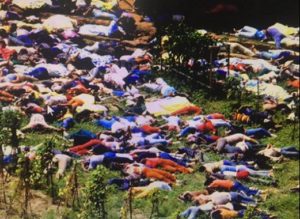

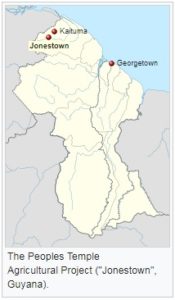 The Peoples Temple Agricultural Project, better known by its informal name “Jonestown“, was a remote settlement established by the
The Peoples Temple Agricultural Project, better known by its informal name “Jonestown“, was a remote settlement established by the  While some refer to the events in Jonestown as
While some refer to the events in Jonestown as 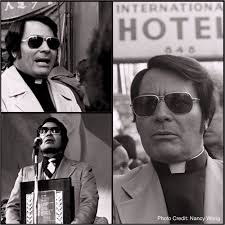 Surely, there were societal defects in place then; the Guyana
Surely, there were societal defects in place then; the Guyana 
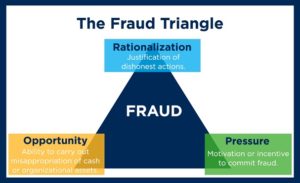



 It is obvious and self-evident that Good Governance must reflect shepherding and oversight with an eye towards local needs. Imagine the imagery of a “Watchman in a high tower in an medieval walled city”, scanning and monitoring the threats that face his community. While such a concern may be security-minded, the other spheres of society – think economics – must also be addressed for local versus national deliberations:
It is obvious and self-evident that Good Governance must reflect shepherding and oversight with an eye towards local needs. Imagine the imagery of a “Watchman in a high tower in an medieval walled city”, scanning and monitoring the threats that face his community. While such a concern may be security-minded, the other spheres of society – think economics – must also be addressed for local versus national deliberations: This is not just an academic discussion; there are real world implications. In one drama, in the Bahamas, friends and enemies are choosing sides right now, as a local project by the global media and hospitality conglomerate Walt Disney Company (Disney Cruise Lines) is being debated.
This is not just an academic discussion; there are real world implications. In one drama, in the Bahamas, friends and enemies are choosing sides right now, as a local project by the global media and hospitality conglomerate Walt Disney Company (Disney Cruise Lines) is being debated.



 Do you know what SOS stands for?
Do you know what SOS stands for?


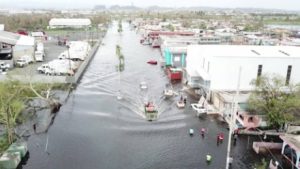
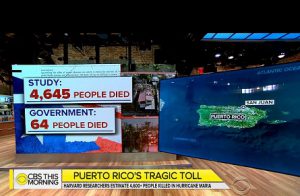
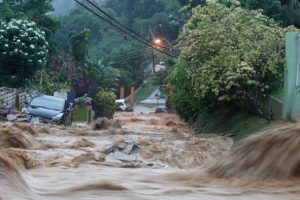
 So when a Caribbean community puts out an SOS –
So when a Caribbean community puts out an SOS –  A Traffic Light is a simple instrument for controlling transport; it ensures order and security for the public. This is an issue of governance, not politics.
A Traffic Light is a simple instrument for controlling transport; it ensures order and security for the public. This is an issue of governance, not politics. Title: Trump may choose to shut down the government this weekend over his border wall demands
Title: Trump may choose to shut down the government this weekend over his border wall demands

 The world’s leading climate scientists have warned there is only a dozen years for global warming to be kept to a maximum of 1.5C, beyond which even half a degree will significantly worsen the risks of drought, floods, extreme heat and poverty for hundreds of millions of people.
The world’s leading climate scientists have warned there is only a dozen years for global warming to be kept to a maximum of 1.5C, beyond which even half a degree will significantly worsen the risks of drought, floods, extreme heat and poverty for hundreds of millions of people.

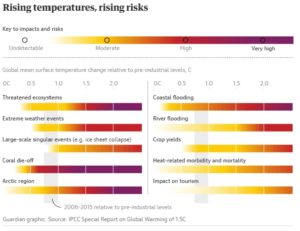

 “I hope this can change the world,” said Jiang Kejun of China’s semi-governmental Energy Research Institute, who is one of the authors. “Two years ago, even I didn’t believe 1.5C was possible but when I look at the options I have confidence it can be done. I want to use this report to do something big in China.”
“I hope this can change the world,” said Jiang Kejun of China’s semi-governmental Energy Research Institute, who is one of the authors. “Two years ago, even I didn’t believe 1.5C was possible but when I look at the options I have confidence it can be done. I want to use this report to do something big in China.” The purpose of any business is to earn a profit.
The purpose of any business is to earn a profit. There is now the opportunity to transform the industrial landscape of Caribbean communities; we can install controls so as to better manage our economy and industrial landscape. Among the many strategies and tactics discussed by this Go Lean movement, there is this one irresistible prospect of introducing electronic money (e-Money) or Payment Cards through out the region.
There is now the opportunity to transform the industrial landscape of Caribbean communities; we can install controls so as to better manage our economy and industrial landscape. Among the many strategies and tactics discussed by this Go Lean movement, there is this one irresistible prospect of introducing electronic money (e-Money) or Payment Cards through out the region. India may have leapfrogged the U.S. technology industry with simple and practical innovations and massive grunt work. It has built a digital infrastructure that will soon process billions more transactions than bitcoin ever has. With this, India will skip two generations of financial technologies and build something as monumental as China’s Great Wall and America’s interstate highways.
India may have leapfrogged the U.S. technology industry with simple and practical innovations and massive grunt work. It has built a digital infrastructure that will soon process billions more transactions than bitcoin ever has. With this, India will skip two generations of financial technologies and build something as monumental as China’s Great Wall and America’s interstate highways.

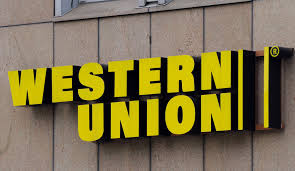
 Imagine an industrial reboot that can take a small investment – seed money – but grow into huge returns for the community.
Imagine an industrial reboot that can take a small investment – seed money – but grow into huge returns for the community.